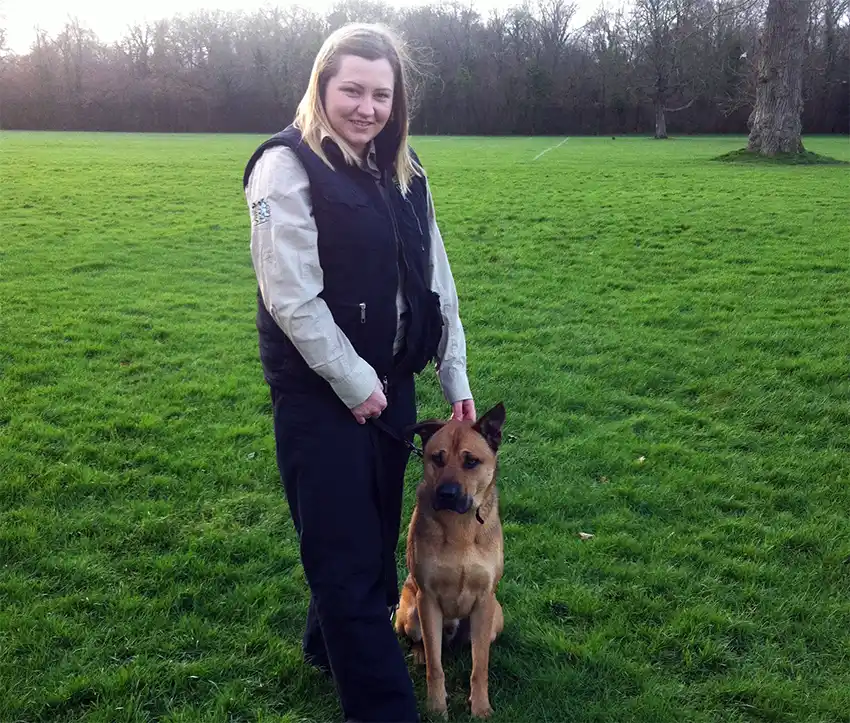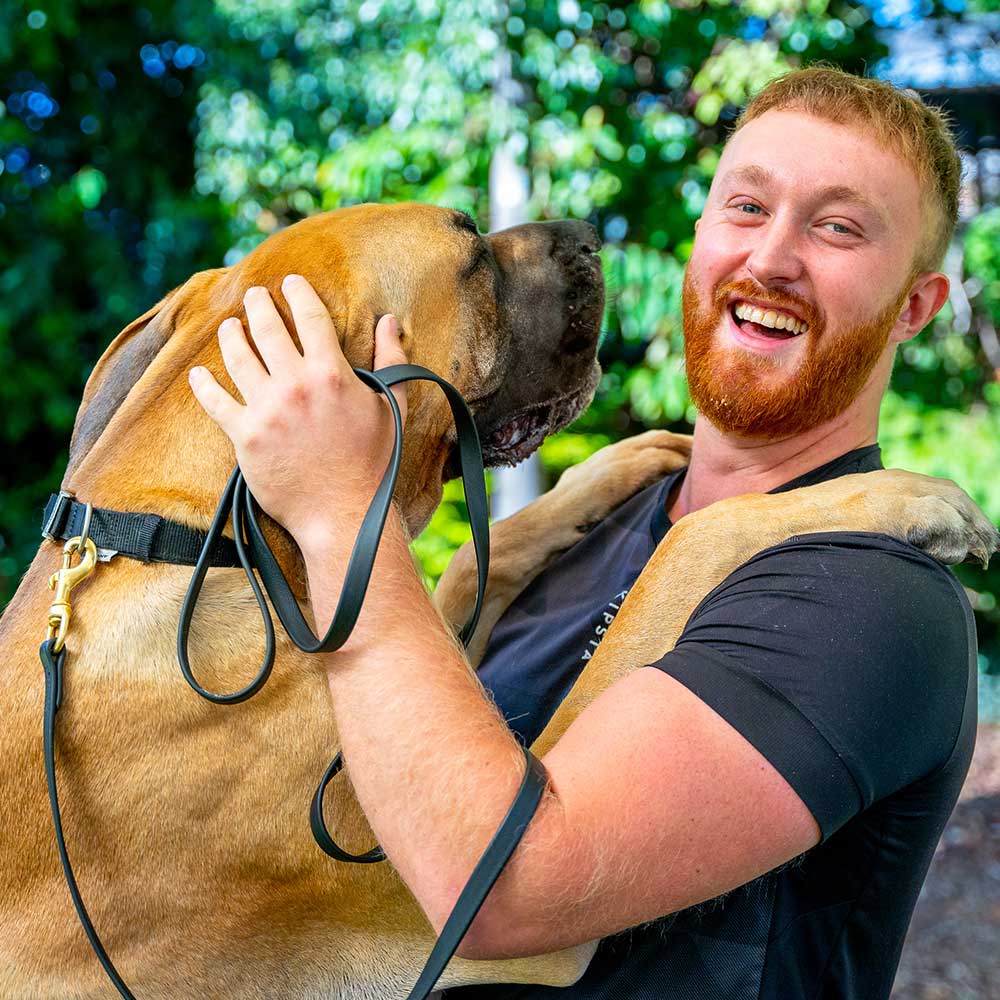Dog Training Secrets: Achieving Results Without Stress
Dog Training Secrets: Achieving Results Without Stress
Blog Article
The Ultimate Overview to Pet Training: Change Your Pet's Behavior
Efficient pet training is essential for cultivating an unified partnership in between family pets and their proprietors. This guide not only intends to outfit you with the required tools to change your pet's behavior but also welcomes you to explore just how these fundamental concepts can lead to a much deeper connection with your pet.
Comprehending Dog Actions
Comprehending dog habits is important for effective training and an unified connection in between pets and their proprietors. A canine's habits is affected by a combination of genetics, atmosphere, and experiences. Dog training. Acknowledging these elements enables owners to tailor their training approaches to satisfy the private needs of their pet dogs
Pets connect mostly through body movement, vocalizations, and faces. A wagging tail can suggest exhilaration or happiness, while a tucked tail may signify concern or entry. Observing these cues enables owners to respond suitably, reinforcing favorable actions and attending to negative ones properly.
Additionally, understanding the social structure of pet dogs can give understandings into their actions. Canines are pack animals, and they flourish in an organized setting. Developing constant policies and clear boundaries can stop confusion and advertise a complacency.
Furthermore, identifying the all-natural reactions of canines, such as the desire to dig or chase after, is vital. These impulses can be rerouted with ideal electrical outlets, such as play or workout. By adequately recognizing these behavior elements, owners can promote a favorable training experience, inevitably leading to a well-adjusted and loyal canine companion.
Vital Educating Techniques
Effective pet training counts on a selection of vital strategies that can substantially boost the understanding process for both the dog and the owner. One basic method is favorable reinforcement, which entails satisfying preferable actions with deals with, appreciation, or playtime. This method urges canines to duplicate the habits that lead to favorable outcomes, fostering a relying on partnership in between the pet dog and proprietor.
Another key strategy is consistency in expectations and commands. Using the same verbal cues and hand signals helps the dog recognize what is needed, lowering complication and advertising quicker understanding. In addition, developing clear boundaries and guidelines is essential for efficient interaction.
Socialization is additionally a crucial part of training. Subjecting pet dogs to different environments, people, and other animals helps them create ideal social abilities and decreases anxiety in strange circumstances.
Last but not least, patience and timing are vital. Training sessions should be short yet regular, making certain that the pet remains involved and responsive. By employing these crucial methods, owners can create a positive and organized training experience that advertises etiquette and reinforces the bond with their canine companions.
Creating an Educating Schedule
How can a well-structured training schedule improve a canine's discovering experience? A training timetable provides uniformity, guaranteeing that dogs receive normal, concentrated direction. This predictability aids pet dogs comprehend what is anticipated of them, reinforcing their knowing and allowing for far better retention of commands and behaviors.
When developing a training timetable, it is vital to consider the pet's age, type, and private temperament. Young young puppies may take advantage of shorter, much more constant sessions, while adult pets may love longer, less constant training periods. Incorporating a range of tasks can also keep the sessions engaging, preventing monotony and promoting interest for understanding.
In addition, organizing training sessions at details times of the day can assist solidify a regimen. As an example, matching training with day-to-day strolls or playtime can produce a positive association with learning. It is likewise important to consist of time for support, such as treats or praise, to compensate wanted habits immediately.
Finally, adaptability is key. While consistency is important, being adaptable to the canine's state of mind or energy level can boost their knowing experience. A well-crafted training schedule ultimately lays the foundation for reliable interaction and a stronger bond in between the dog and owner.
Typical Educating Difficulties
Regardless of go now having a well-structured training timetable, dog proprietors commonly experience various challenges during the training procedure. One typical concern is disparity in signs and commands. When numerous member of the family make use of different terms or tones, a canine might end up being baffled, preventing its ability to learn successfully.
One more constant challenge is distraction. Dog training. Canines are normally curious creatures, and exterior stimuli such as various other animals, sounds, or people can divert their attention throughout training sessions. This needs owners to create a regulated environment or gradually present diversions to strengthen focus
Additionally, varying power levels can influence training outcomes. High-energy canines may have a hard time to calm down and concentrate, while a lot more easygoing types could require added inspiration to engage. Customizing the training approach to fit the individual pet dog's personality is vital for success.

Building a Strong Bond
A solid bond between a pet and its proprietor is necessary for effective training and total well-being. Dog training. This partnership promotes depend on, which is crucial for effective interaction throughout the training process. When a pet dog feels safe and linked to its owner, it is a lot more likely to respond favorably to commands and cues
To construct this bond, uniformity is key. Developing a routine that includes routine feeding, exercise, and training sessions assists produce a feeling of security. Furthermore, favorable reinforcement strategies, such as treats, praise, and play, enhance wanted habits while strengthening the emotional connection.
Socialization is another crucial facet of bond-building. Subjecting your pet dog to different settings, people, and various other animals helps them feel more comfy and certain, enhancing the bond with their owner. Participating in tasks together, such as walking, playing fetch, or joining obedience training, promotes team effort and common enjoyment.
Conclusion

Understanding pet dog actions is essential for effective training and a harmonious relationship between pet dogs and their proprietors.Reliable pet dog training relies on a variety of important methods that can dramatically boost the discovering process for both the pet and the proprietor.In spite of having a well-structured training schedule, dog owners usually experience various obstacles throughout see it here the training procedure.In conclusion, reliable canine training relies on an extensive understanding of canine behavior, the application of essential methods, and the establishment of an organized training routine. By emphasizing favorable support and uniformity, dog owners can substantially boost their family pets' behavior, eventually making sure a harmonious partnership and advertising the well-being of both the canine and its setting.
Report this page